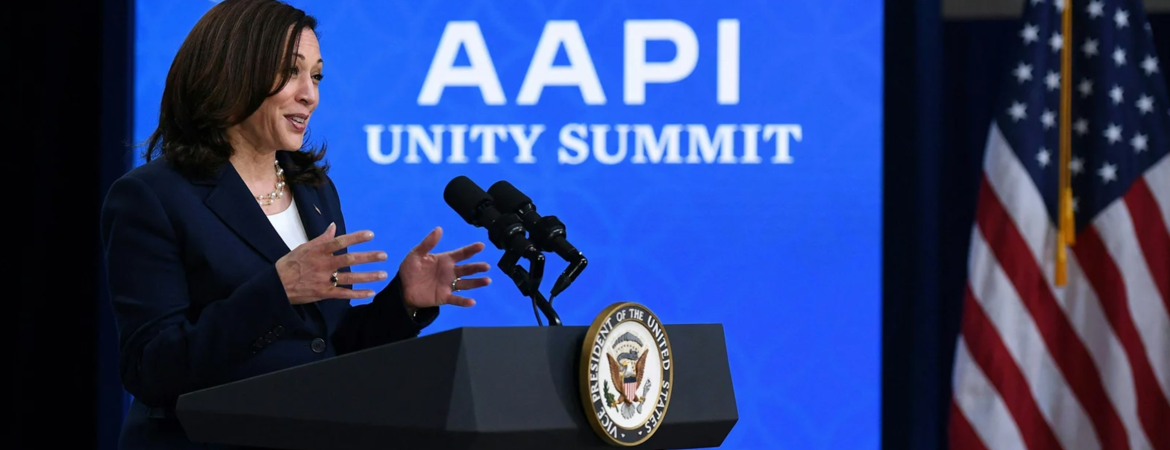Center for Social Innovation

Vice President Harris on Wednesday urged Asian Americans and Pacific Islanders to turn their pain, after a year marked by a surge of racially motivated attacks, into power.
She also praised the passage of legislation to address the increase in hate crimes and violence against Asian Americans during the coronavirus pandemic.
An analysis of the U.S. Current Population Survey from AAPI Data found that turnout among Asian American citizens grew from 49% in 2016 to 60% in 2020. Among Pacific Islanders, turnout increased from 41% in 2016 to 55% in 2020.
Asian Americans and Pacific Islanders had the highest increases in voter turnout for any racial or ethnic group from 2016 to 2020, according to Karthick Ramakrishnan, the director of AAPI Data.
"It's important to pay attention both to short-term campaign dynamics that help increase voter turnout because of increased investments by partisan organizations, but it's also important to acknowledge that those short-term increases build on a foundation of long-term investments in community organizing, naturalization, voter registration and voter education," Ramakrishnan said.
Data suggests that the majority of Asian voters cast ballots for then-candidate Joe Biden in the 2020 general election, Ramakrishnan said. Strong turnout among Asian Americans played a decisive role in swinging Georgia to Democrats for the first time since 1992. And analysts say that demographic change also played a role in places like Arizona, Michigan and Nevada.
Ramakrishnan said there was a stark increase in voting among second-generation immigrants, who were born in the United States to immigrant parents.
"This second generation is coming of political age and especially during this moment of COVID and the increase in anti-Asian racism and hate incidents, you are seeing a kind of political consciousness that's forming that will likely last a generation," he said. "So I think looking ahead, we're going to see a lot more civic engagement, political activism among the younger Asian American population, and especially given the circumstances of the past year."
Ramakrishnan and others say there are a variety of reasons why the number of Asian American political candidates has been on the rise, though he and other say there is still a long way to go. A recent report from the Reflective Democracy Campaign found that Asian American and Pacific Islander elected officials make up just 0.9% of elected leaders in the U.S
Ramakrishnan pointed out that when Asian candidates run for office and win, it encourages other potential candidates to come off the sidelines and either run themselves or become donors.
This article can also be found on KQED.